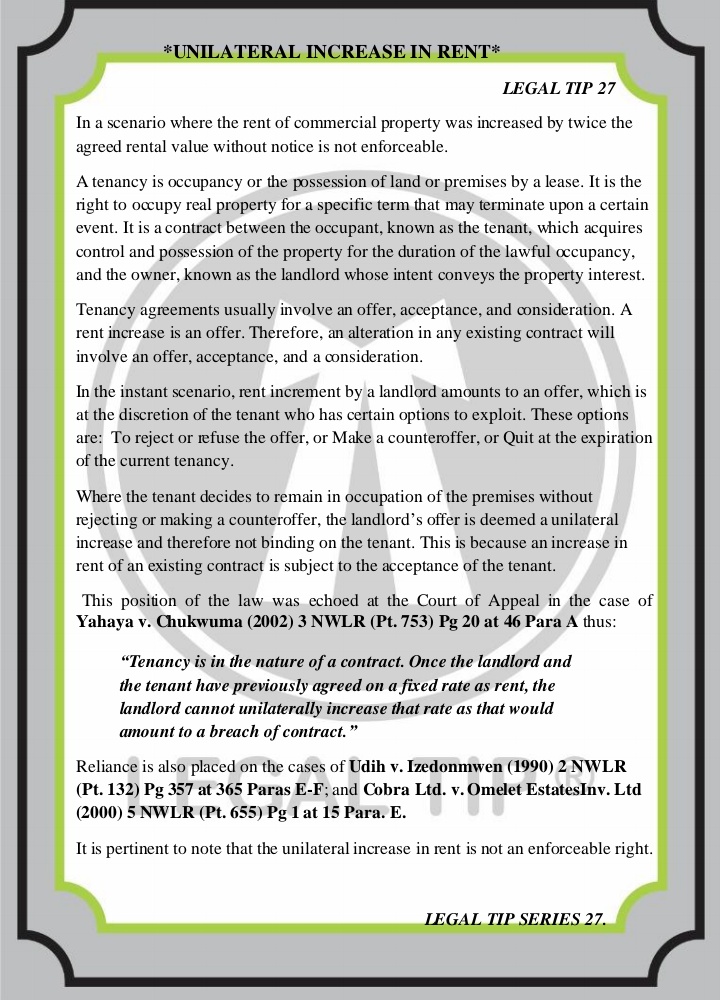In a scenario where the rent of commercial property was increased by twice the agreed rental value without notice is not enforceable.
A tenancy is occupancy or the possession of land or premises by a lease. It is the right to occupy real property for a specific term that may terminate upon a certain event. It is a contract between the occupant, known as the tenant, which acquires control and possession of the property for the duration of the lawful occupancy, and the owner, known as the landlord whose intent conveys the property interest.
Tenancy agreements usually involve an offer, acceptance, and consideration. A rent increase is an offer. Therefore, an alteration in any existing contract will involve an offer, acceptance, and a consideration.
In the instant scenario, rent increment by a landlord amounts to an offer, which is at the discretion of the tenant who has certain options to exploit. These options are: To reject or refuse the offer, or Make a counteroffer, or Quit at the expiration of the current tenancy.
Where the tenant decides to remain in occupation of the premises without rejecting or making a counteroffer, the landlord’s offer is deemed a unilateral increase and therefore not binding on the tenant. This is because an increase in rent of an existing contract is subject to the acceptance of the tenant.
This position of the law was echoed at the Court of Appeal in the case of Yahaya v. Chukwuma (2002) 3 NWLR (Pt. 753) Pg 20 at 46 Para A thus:

“Tenancy is in the nature of a contract. Once the landlord and the tenant have previously agreed on a fixed rate as rent, the landlord cannot unilaterally increase that rate as that would amount to a breach of contract.”
Reliance is also placed on the cases of Udih v. Izedonmwen (1990) 2 NWLR (Pt. 132) Pg 357 at 365 Paras E-F; and Cobra Ltd. v. Omelet EstatesInv. Ltd (2000) 5 NWLR (Pt. 655) Pg 1 at 15 Para. E.
It is pertinent to note that the unilateral increase in rent is not an enforceable right.
LEGALTIPS is anchored by Ms CIA Ofoegbunam, an Abuja-based lawyer who is passionate about legal practice.
LEGALTIPS offers quick hints on substantive law, as well as rules of practice and procedure, and serves as a handy reference guide to lawyers, especially in court.
Published on a weekly basis, the LEGALTIPS Series is CIA’s modest contribution to legal development in Nigeria.



